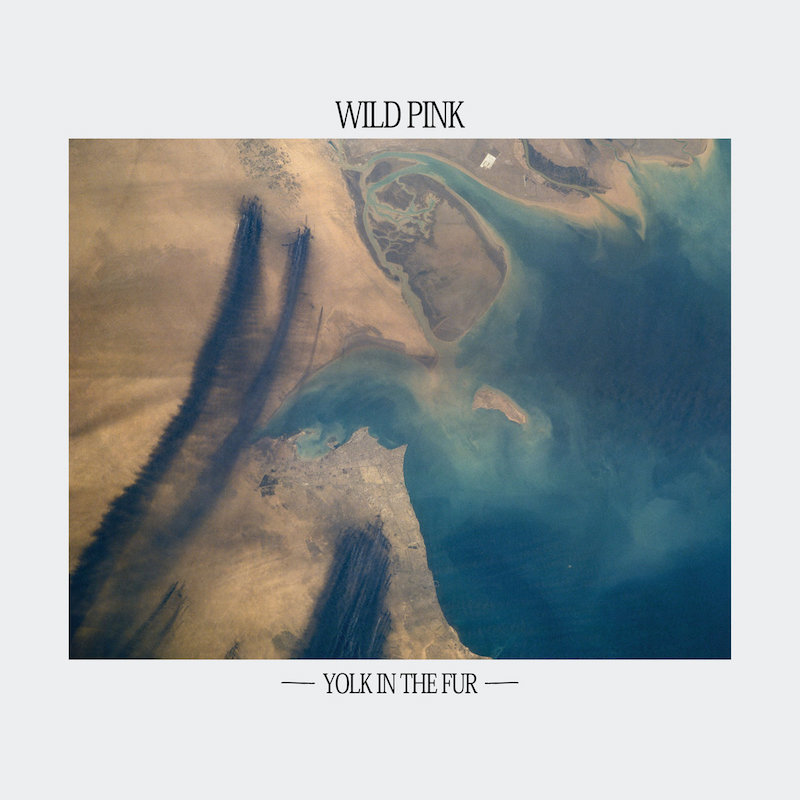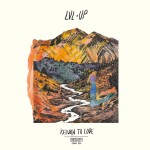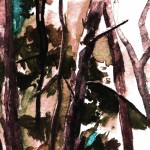Wild Pink : Yolk in the Fur

The vocals are always the tell. Maybe the band had two lead singers on the first record, or maybe a different singer entirely. Or maybe, like on Wild Pink’s (very good) self-titled debut, the vocals are filtered-up, buried in the back of the mix, obfuscated. But when that follow-up comes, indie bands from time immemorial have cleaned up their act and made themselves legible. Yolk in the Fur sees Wild Pink speaking up and taking a swing at full-tilt, expansive indie rock, the kinds of wording anthemic tunes that made bands like The Hold Steady and Titus Andronicus into household names. And while this record lacks some of the gut-punch immediacy of those bands’ best work, it remains a tuneful and resonant meditation on the small moments that constitute love.
Yolk’s ten songs are much more “buildup and comedown” than they are “soft part, loud part, repeat.” John Ross and company take their time establishing atmospheres with careful verses and gentle instrumentation before building to rolling boils around a key phrase or two. Most of Ross’ narratives begin with images, like the old man in “Love is Better” who’s picking blue crabs at the bar “with his eyes closed, mouthing the words to the Kim Carnes song on the radio.” His lyrics are sharp but colloquial, structured more like prose than verse, and personal without being explicitly diaristic. He has a knack, too, for honing in on uncertainties and disappointments, as on “There is a Ledger,” when he tells an old flame, “I held your heart in my hands / But I was never in love.”
Ross sings in a thin, warbling tenor reminiscent of no one so much as the indie-folk violinist Andrew Bird; he sings quietly, his lonely voice never supported by harmony, never wavering from the middle of his register to yearn for higher notes. Ross’ guitar tone is well-suited to the clear-spoken plaintiveness of his vocals; in a Stereogum interview, he cited Tom Petty as a formative influence, and indeed, there’s an ’80s-style quality about the reverberant, shimmering riffs that scatter sunlight through Yolk. TC Brownell and Dan Keegan, who fill out Wild Pink’s rhythm section at bass and drums, respectively, keep the band’s sound anchored in solid, unshowy lockstep. Keegan stays away from fills almost entirely, and Brownell sticks mostly to unswung quarter notes, reminding Ross that rock songs are obligated to a sense of forward motion.
It’s not fair to say, though, that the music of these songs exists just to support their lyrics. What feels more accurate is to imagine Ross trying to express what he feels as clearly as he can in words before the band as a whole tries to make their sound as big as the pain in Ross’ chest. It’s classic show-don’t-tell, unless it’s tell-until-you-have-to-show. Ultimately, the thing I admire most about this record is how it manages to be openly reflective without ever sinking into bitterness, how it treats the well of the past as something to draw from and not something to poison. The textures of this album can blend together if you’re not listening closely enough, but if you zero in, there’s a hell of a lot worth hearing.
Similar Albums:
 Cymbals Eat Guitars – Pretty Years
Cymbals Eat Guitars – Pretty Years
 LVL UP – Return to Love
LVL UP – Return to Love
 Hop Along – Bark Your Head Off, Dog
Hop Along – Bark Your Head Off, Dog

